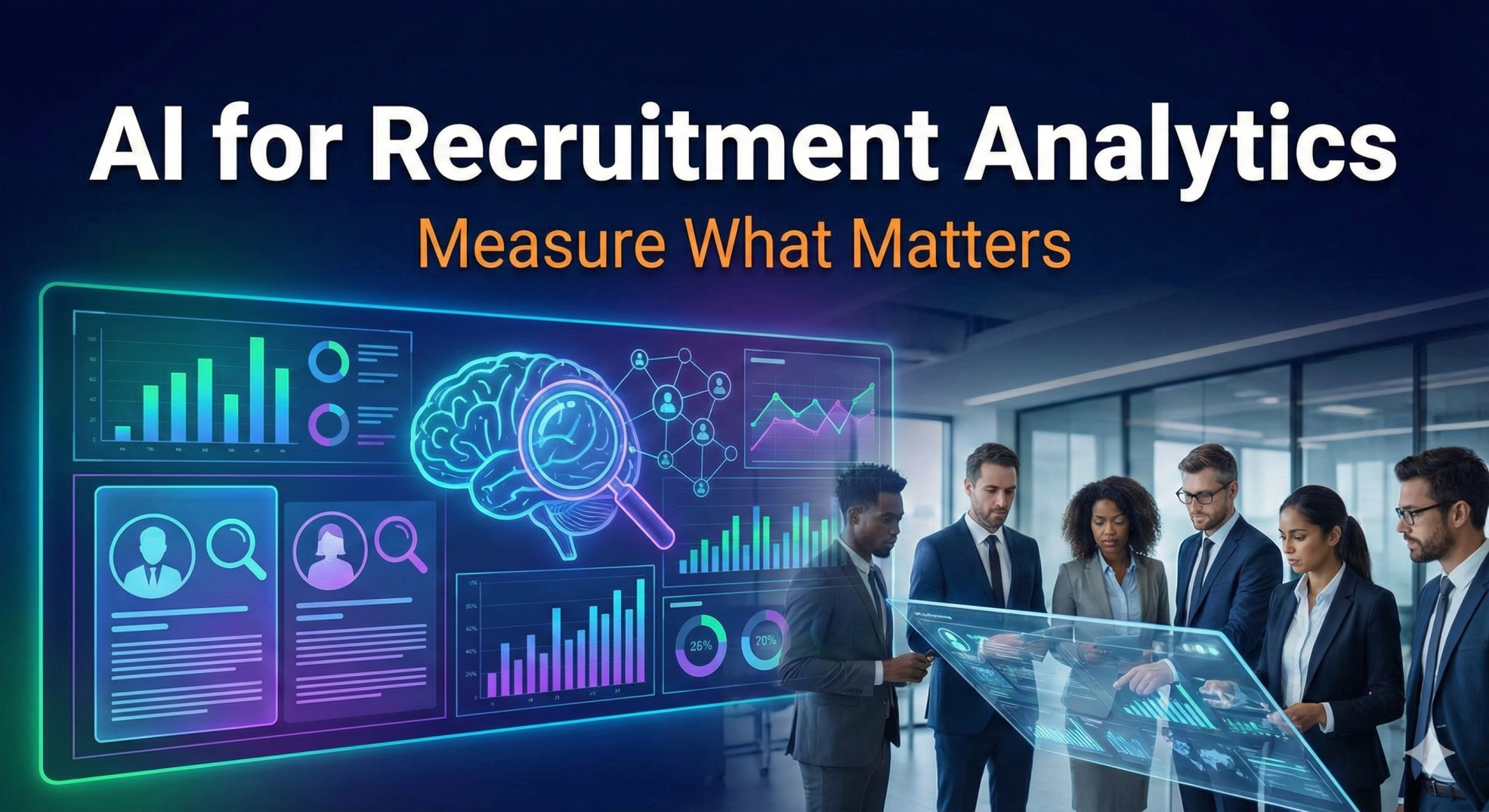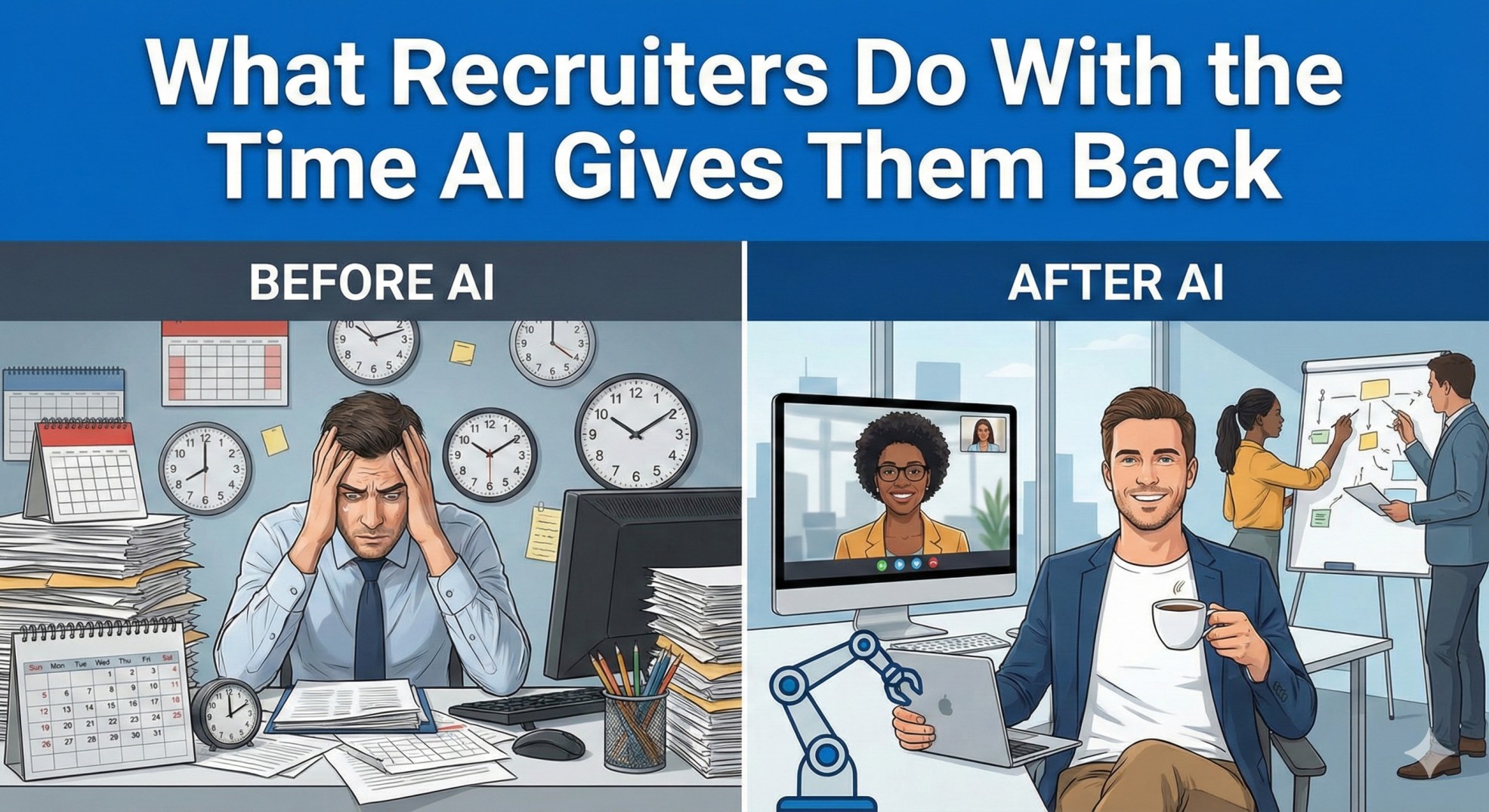How AI is Shaping the Future of Talent Acquisition
.webp)
The introduction of tools like Google Bard, Open AI's ChatGPT, and Microsoft's new Bing has undoubtedly meant one thing: everyone is discussing how generative AI (GAI) may alter the way we do business. Although it's too soon to predict with certainty what effect GAI will have, it is reasonable to expect that a variety of areas of people's jobs will alter and develop.
Talent professionals are now facing a multitude of intriguing questions due to the rapid advancements in AI. They find themselves pondering the potential impact on talent acquisition jobs and how the automation of certain tasks will necessitate a transformation in the skills recruiters require.
The integration of AI in recruitment also demands a paradigm shift in the skillset of recruiters. They must now be proficient in understanding and leveraging AI technologies, interpreting AI-generated data, and continuously adapting to evolving AI-driven recruitment tools.
AI has become an integral part of the talent acquisition process today. It aids in various tasks, such as answering candidate questions, scheduling interviews, and optimizing job posts. Recruiters also benefit from AI's assistance in sourcing candidates, with platforms like CBREX offering features to enhance resume screening and identifying suitable candidates based on their fit score. The value of AI in recruitment is already evident, and the focus now is on exploring further meaningful applications.
Generative AI offers valuable assistance in tackling crucial recruiting fundamentals like writing job descriptions, helping with candidate outreach, crafting accurate Boolean search strings, and generating potential interview questions.
As AI evolves and increasingly automates routine tasks, recruiters can shed the burden of repetitive and less engaging responsibilities. This allows them to concentrate on the more human-centric aspects of recruiting. It’s not wrong to predict a rise in recruiters embracing AI integration into their workflows as they become more accustomed to its efficiency and the ease it brings to their job.
In our previous blog, we talked about the importance of skill-based hiring without any human bias. With AI aiding the recruitment process, skills-first hiring is a paradigm shift that it will make possible. Through gamified assessments and AI-powered simulations, GAI can help evaluate candidate capabilities, placing a strong emphasis on their skills and competencies. Unlike traditional hiring approaches that primarily focus on past experiences, GAI empowers recruiters to identify candidates with the right skill set for the job, promoting a more diverse and inclusive workforce.
In the fast-evolving job market, agility is the key to staying ahead. GAI provides real-time data query, visualization, analysis and insights, enabling recruiters to make data-driven decisions swiftly. This agility allows recruiters to adapt to changing talent demands and market trends promptly. Moreover, the integration of GAI will possibly introduce specialized roles within Talent Acquisition.
Recruiters might choose to specialize in various areas, such as diversity, equity, and inclusion (DEI), or take on the role of internal mobility advisors, guiding employees in their career progression within the organization. Additionally, some recruiters could have hybrid roles that bridge talent acquisition with learning and development initiatives.
While AI promises to make recruiting more efficient, it doesn’t negate the involvement of recruiters in reaching out to their potential candidates and adding a human touch to the entire recruitment process.
AI leaves room for recruiters to build influence and lasting relationships with potential candidates by taking away the daunting tasks involved in recruiting.
While GAI excels at assessing hard skills, the value of soft skills remains paramount. Recruiters play a pivotal role in evaluating interpersonal skills, emotional intelligence, and cultural fit—qualities that artificial intelligence may not capture effectively. By leveraging AI as a supportive tool, recruiters can conduct behavioral interviews and situational judgment tests to comprehensively evaluate both hard and soft skills, ensuring a holistic candidate assessment.
Generative AI is definitely a transformative force in the hiring landscape, revolutionizing the way recruiters find and select top talent. Companies in the recruitment space like CBREX have been leveraging the power of AI-built features to simplify talent acquisition and talent management. While AI enhances a recruiter’s efficiency, it wouldn’t impair the skills and strategies required to build an effective recruitment process.

.jpg)






